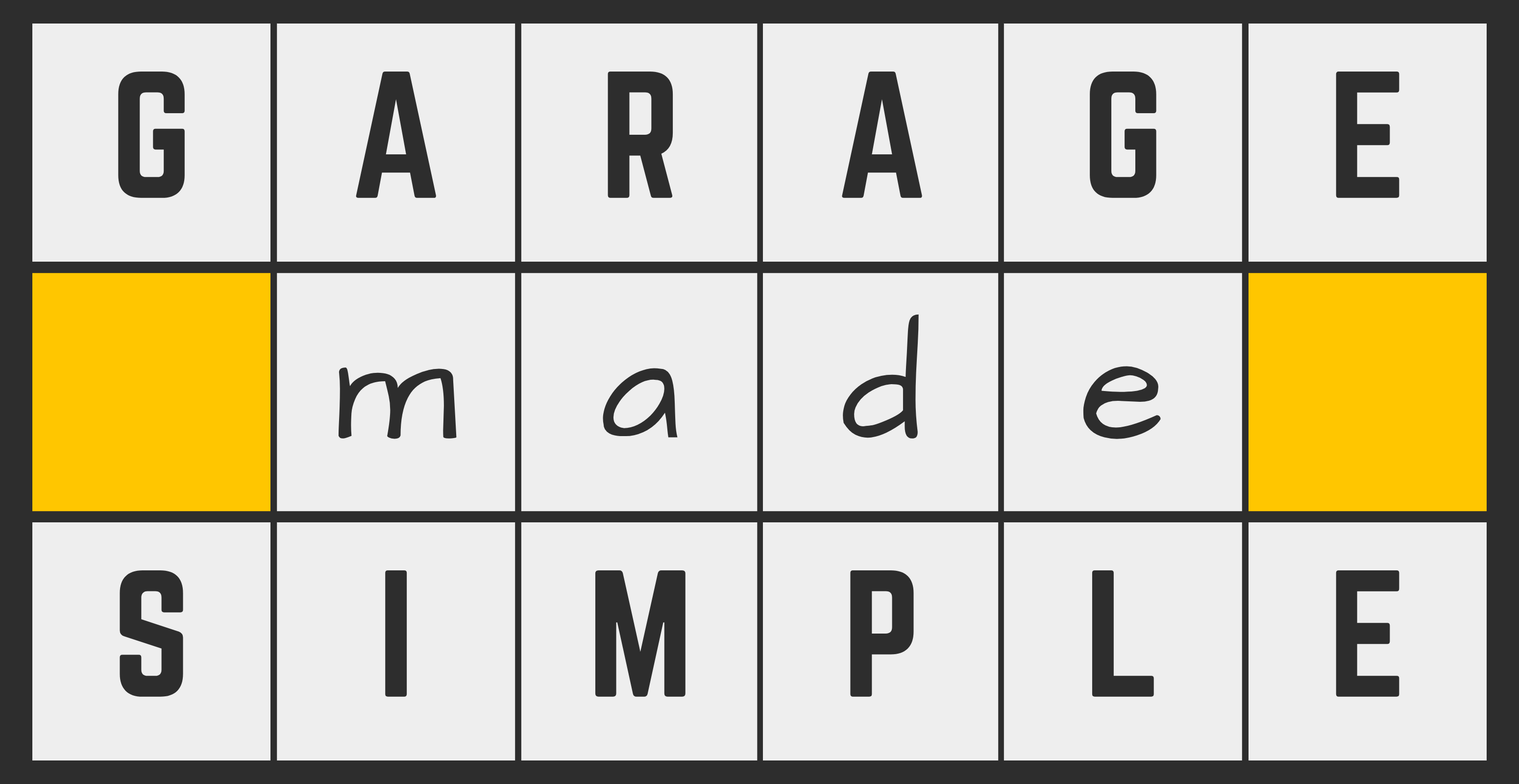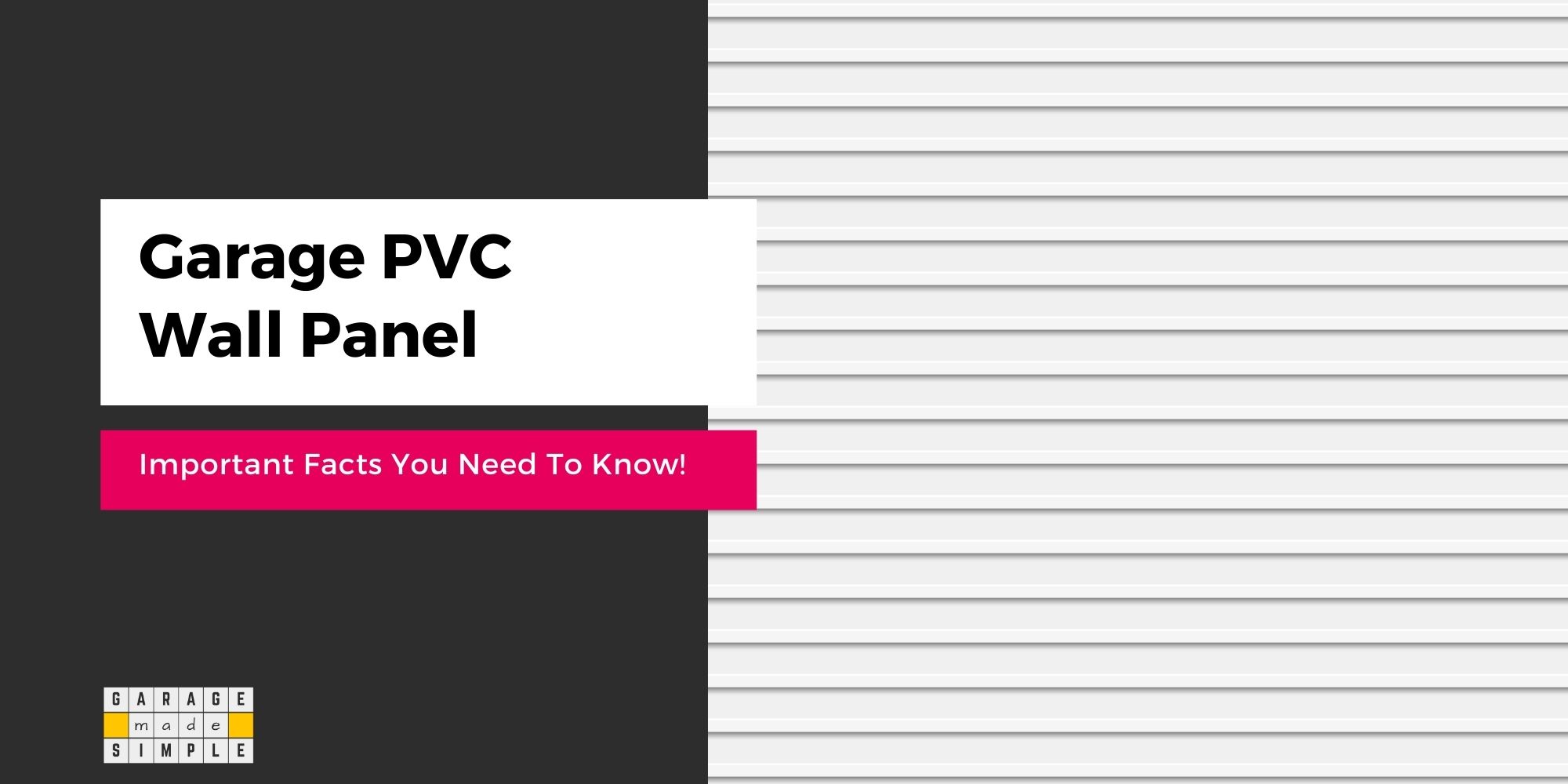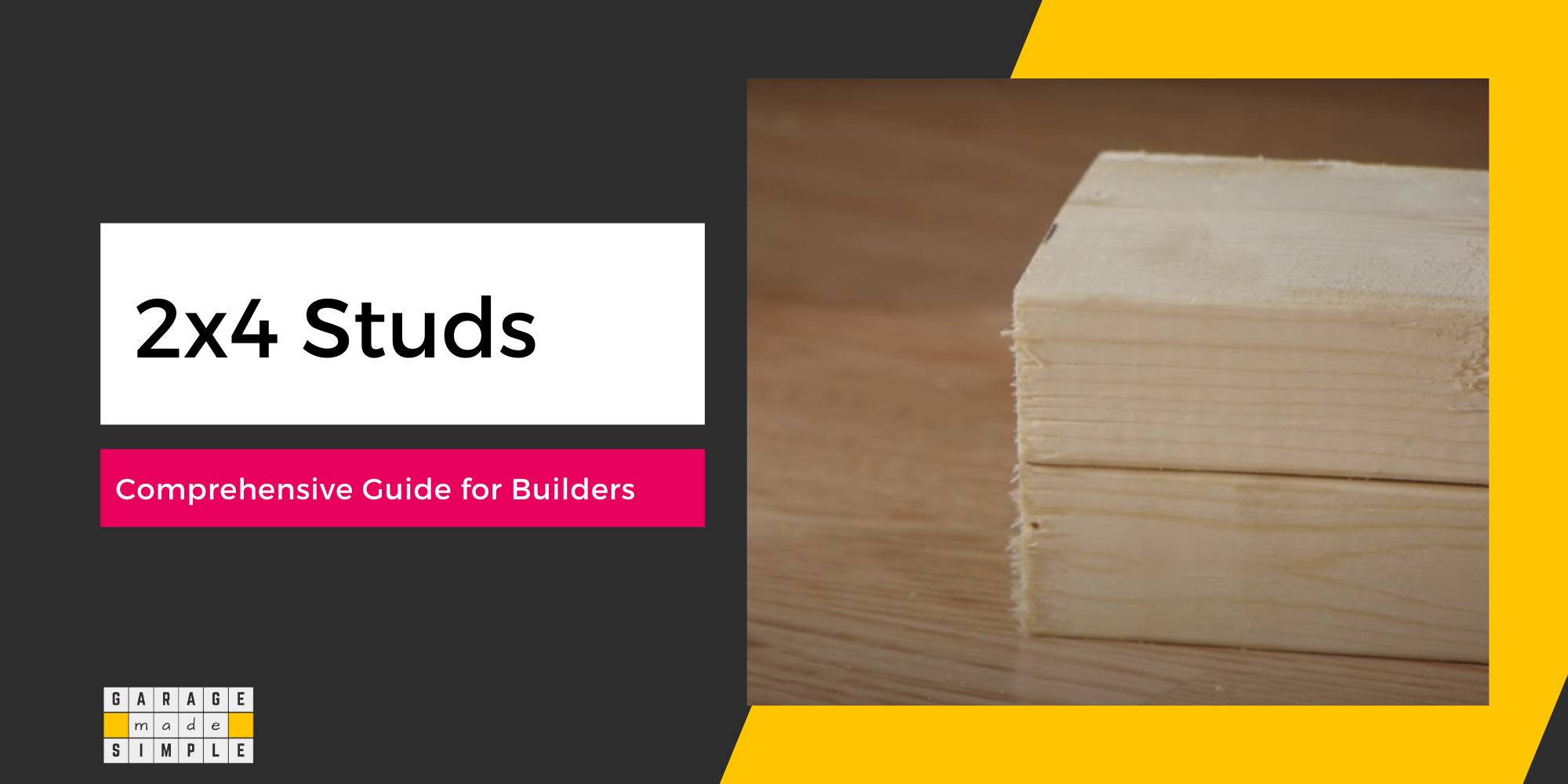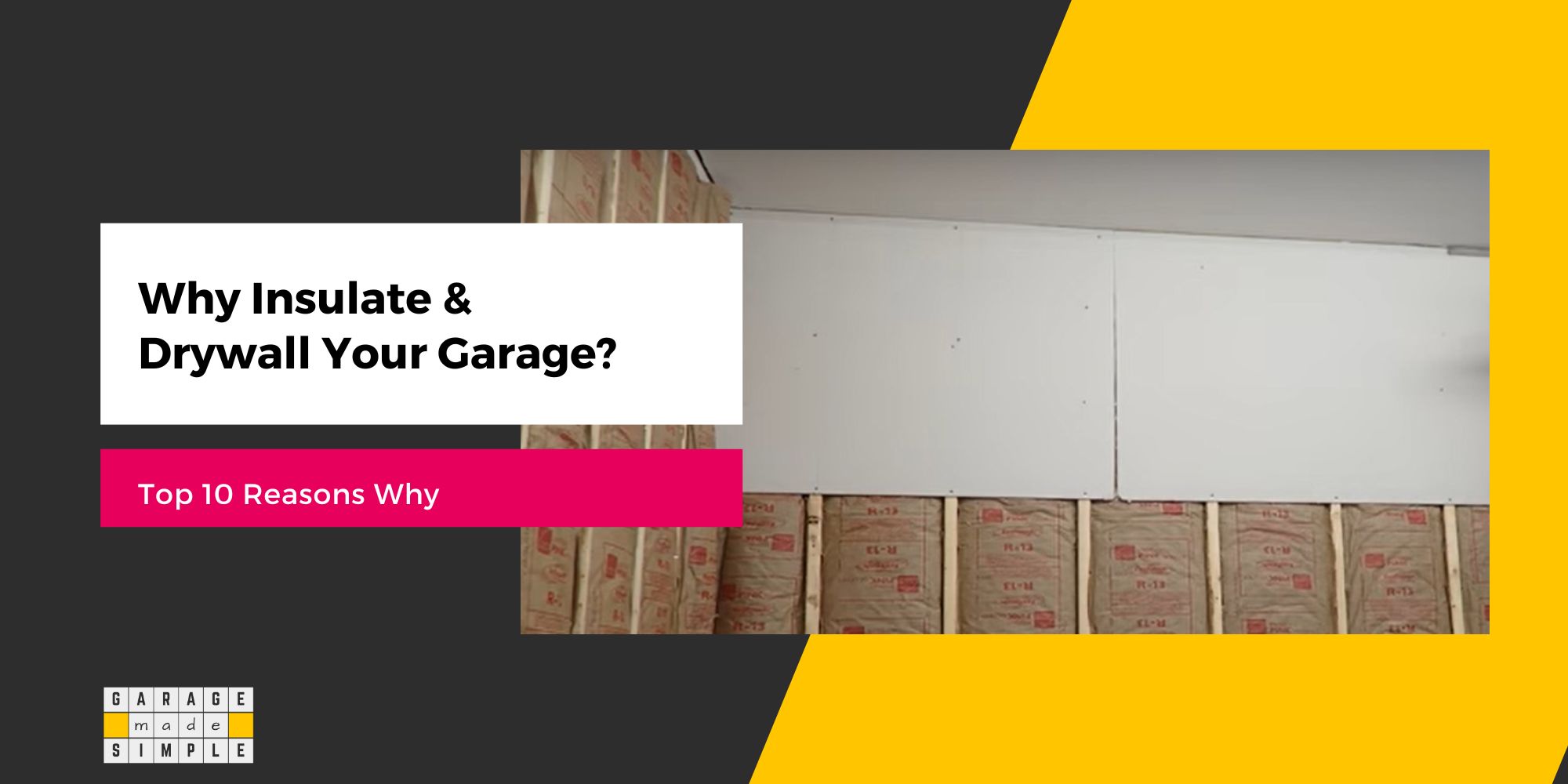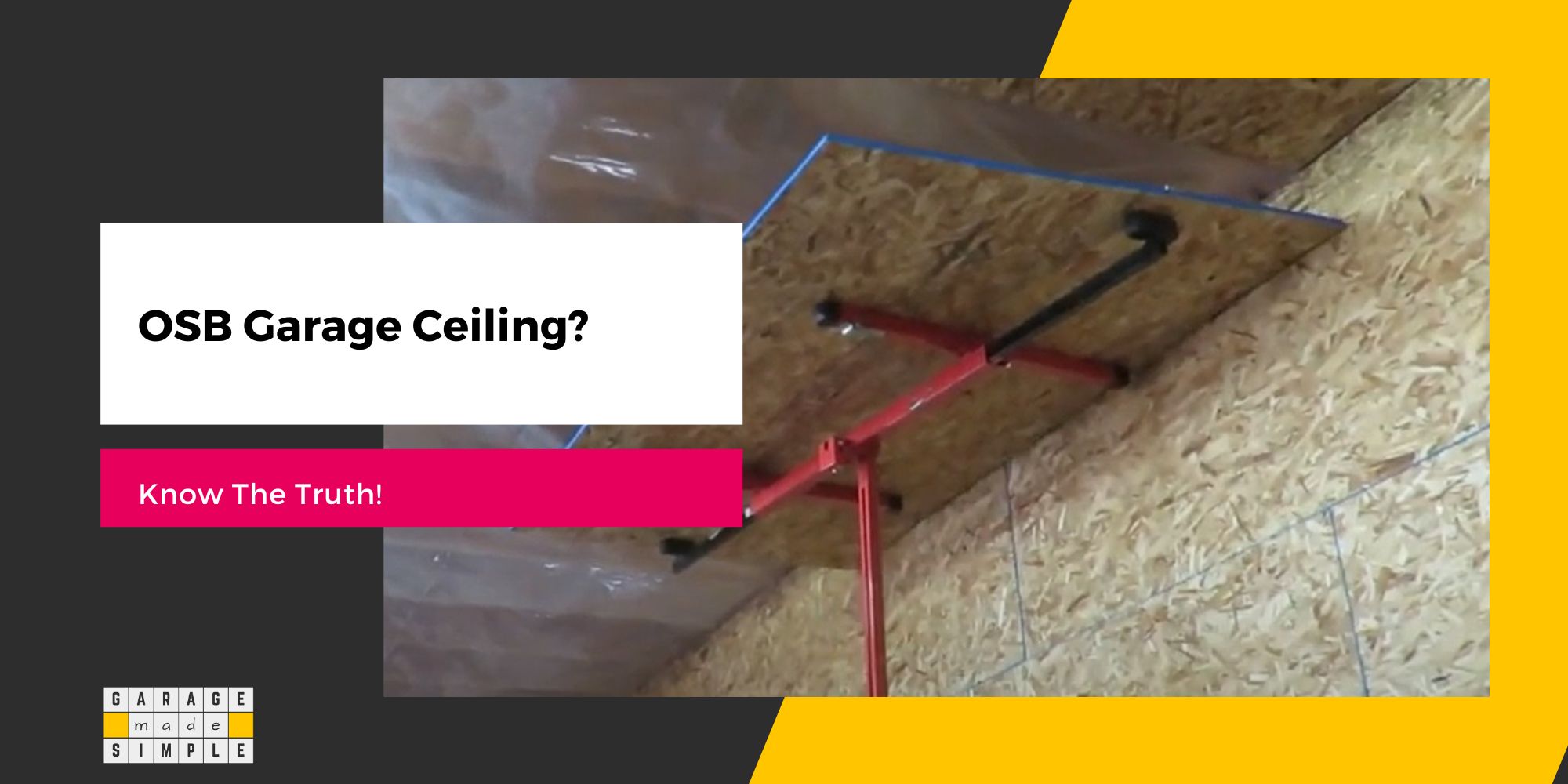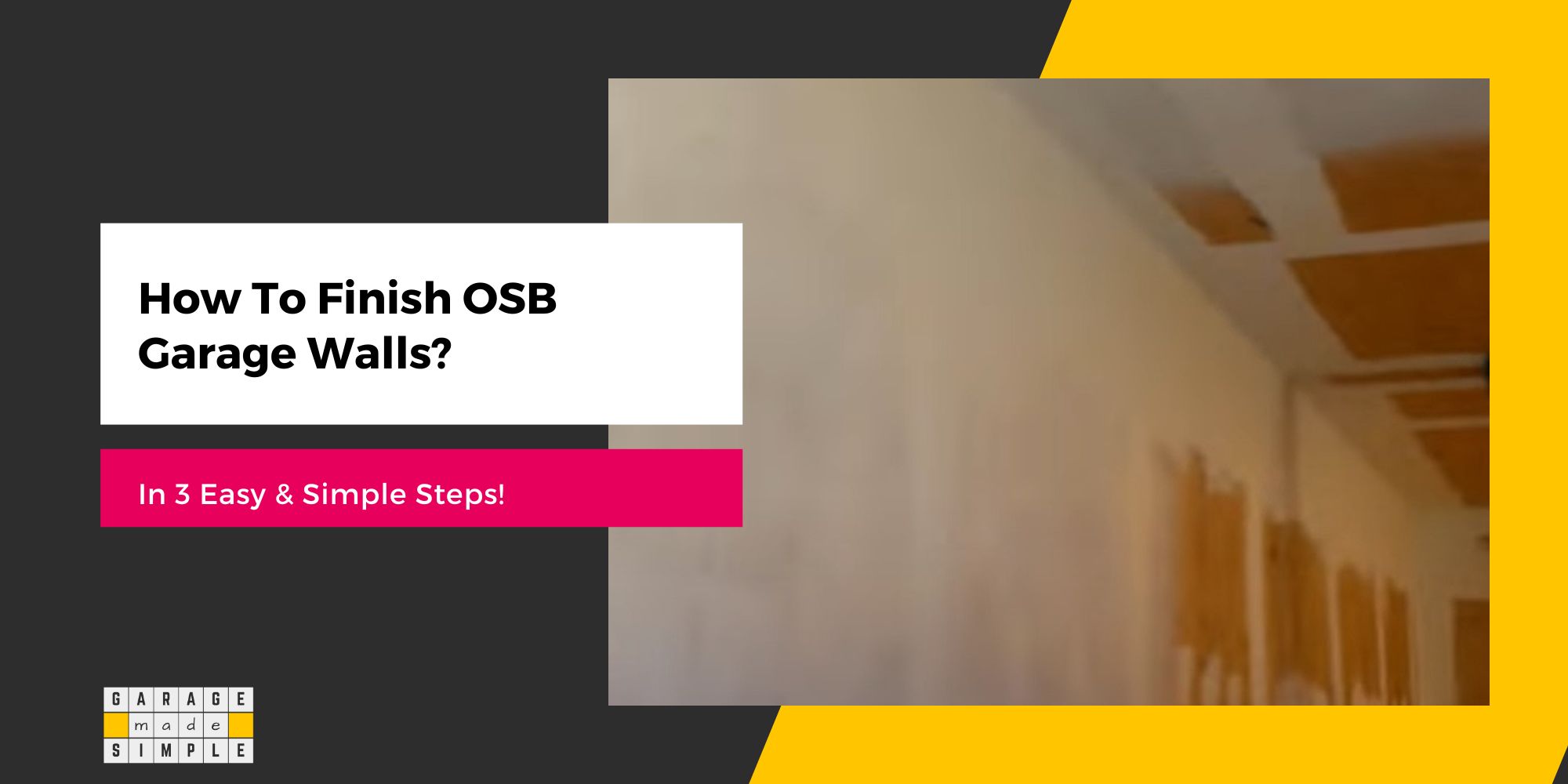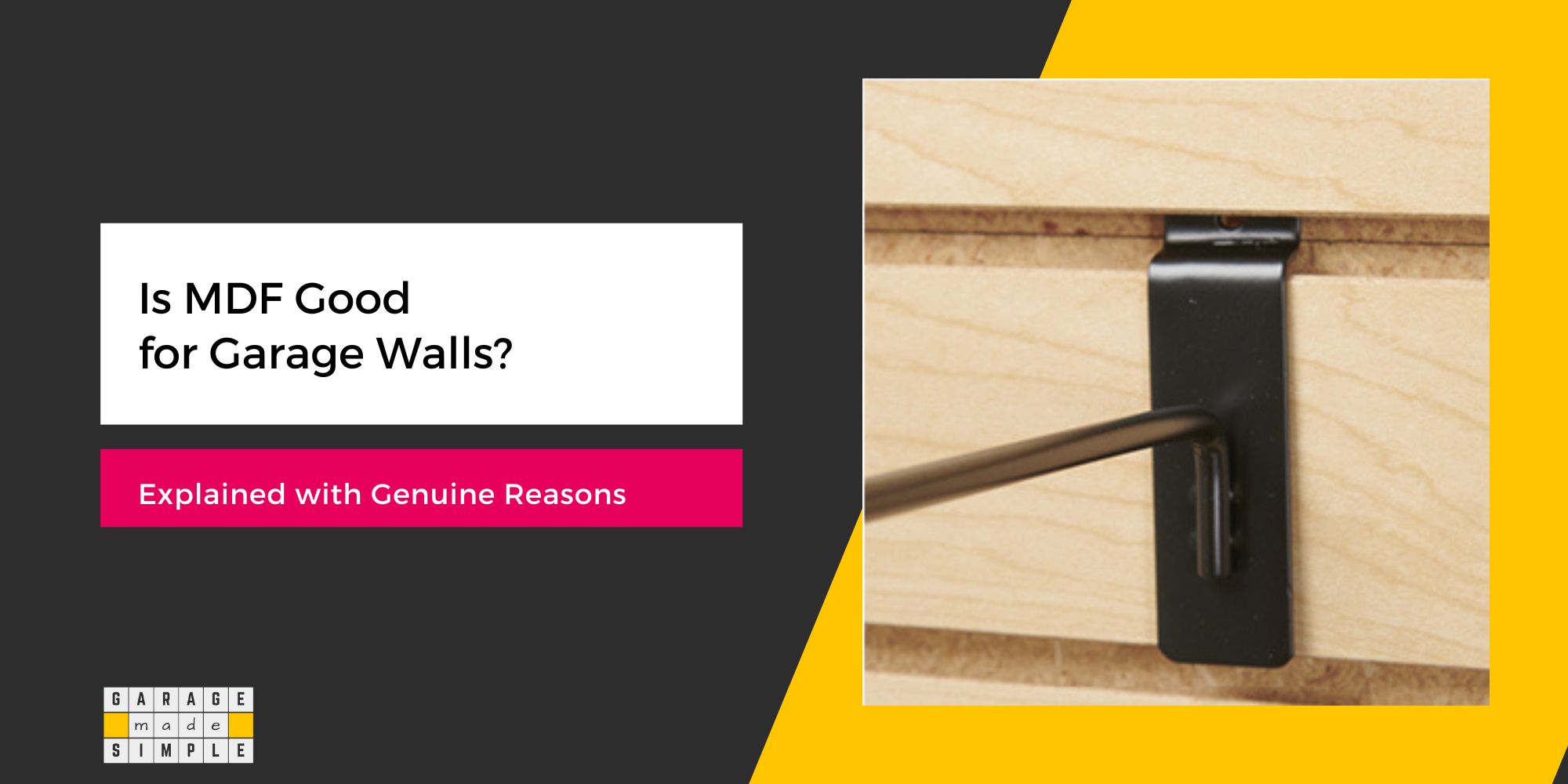Do you Have to Drywall Garage Walls? 3 Excellent Alternatives
As an Amazon Associate, I earn from qualifying purchases.
Are Drywall Garage Walls Necessary?
If you have built a new garage or remodeled an existing one, then you need to decide on the sheathing material for the wall studs. Drywall is a very popular sheathing material but is it necessary to drywall garage walls? Can you consider alternatives?
The truth is that it is not necessary to drywall garage walls. Alternative sheathing materials can be used in a detached garage. Even for an attached garage, the 2021 IRC code requires the use of “gypsum board or equivalent”. Drywall is not mandated by code.
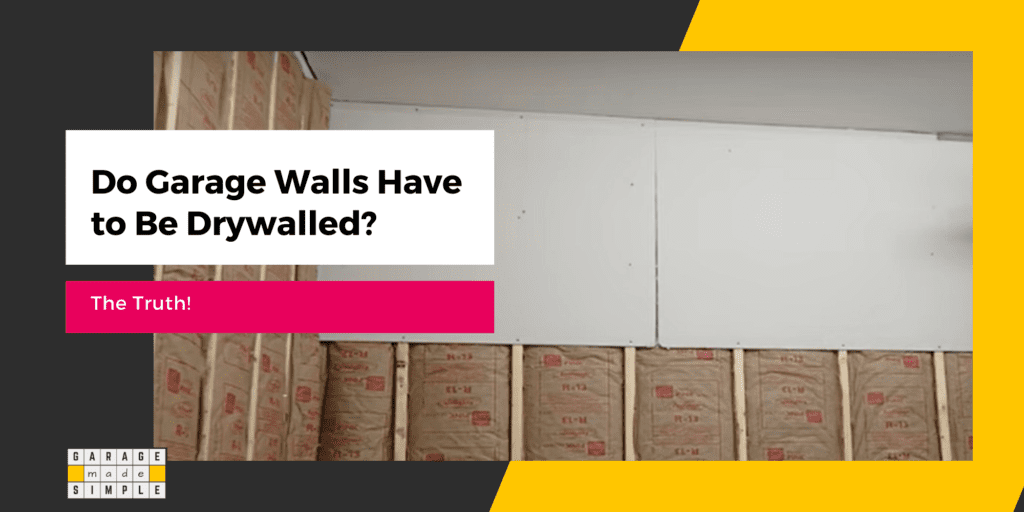
Of course drywall, as a sheathing material for a garage wall, has many advantages. Drywall is fire resistant, pest resistant, easy to install and cheap. But on the other hand it has a few disadvantages that can be a deal breaker for some.
Drywall is porous and hygroscopic. It readily absorbs water which can lead to mold growth. The drywall can also get soggy and crumble. Drywall has low impact resistance, which is not great for a garage wall.
Key Takeaway: Comparison Between Drywall Garage Walls & 3 Alternatives
Cement Board, Metal Panels and Plywood are 3 excellent alternatives to Drywall for Garage Walls, provided they are approved by the Local Authorities.
Below is a comparison table, where the 4 sheathing materials have been rated on 7 important parameters. A 5-star rating implies that the sheathing material is the best choice for that parameter and a rating of 1-star implies that the sheathing material is the worst choice for that parameter.
| Material / Parameter | Drywall | Cement Board | Metal Panels | Plywood |
| Durability | ★★ | ★★★★ | ★★★★★ | ★★★ |
| Strength | ★★ | ★★★★ | ★★★★★ | ★★★★ |
| Fire Resistance | ★★★★★ | ★★★★★ | ★★★★★ | ★★ |
| Water Resistance | ★ | ★★★★★ | ★★★ | ★★ |
| Pest Resistance | ★★★ | ★★★★★ | ★★★★★ | ★ |
| Ease of Installation | ★★★★★ | ★ | ★★ | ★★★ |
| Cost | ★★★★★ | ★★ | ★★ | ★★★ |
Does Code Require Drywall for Garage Walls?
Section R302.6 of The 2018 International Residential Code (IRC) states that:
The garage shall be separated as required by Table R302.6. Openings in garage walls shall comply with Section R302.5. Attachment of gypsum board shall comply with Table 702.3.5. The wall separation provisions of Table 302.6 shall not apply to garage walls that are perpendicular to the adjacent dwelling unit wall.
For details of Table R302.6, you can check out my blog post Code For Drywall In A Garage? (The Truth You Need To Know!). The important points to note are that the IRC code
- specifies the use of “gypsum board or equivalent”. The key concern for IRC is to ensure adequate protection of an attached dwelling from any fire accident in the garage. As such, any sheathing material that is considered to have the same or higher fire resistance than drywall, is acceptable as an alternative.
- does not insist on use of fire rated sheathing material “on garage walls that are perpendicular to the adjacent dwelling unit wall”.
- does not insist on use of fire rated sheathing material in garages that are detached (over 3 feet from a dwelling unit).
So, “Should Garage Walls be Drywalled as per IRC Code”? The answer is NO!
Should I Finish My Garage Walls?
A very valid question. If the IRC Code does not require that Garage Walls be Drywalled, then it is pretty reasonable to ask “Should I Finish My Garage Walls”?
In case of an attached garage, the walls that are adjoining to the dwelling unit, must be finished with “gypsum board or equivalent”, as per the IRC Code. If you are not going to use gypsum board (that is drywall), then you must use an equivalent.
In case of a detached garage you can choose not to finish the garage walls. However, I do not recommend leaving even a detached garage unfinished. An unfinished garage not only looks shabby, but can also be uncomfortable, unsafe and insecure.
By the same logic, the attached garage walls that are perpendicular to the adjacent dwelling unit wall, should be finished.
What Can I Use Instead of Drywall for Garage Walls?
There are a few good alternatives to drywall, should you choose not to have your garage walls drywalled. My personal favorites are:
1. Cement Board
Cement Boards are made from cement and water and are reinforced by incorporating cellulose (plant based) fibers or particles.
Cement Boards are Fire Resistant, Water Resistant, Mold & Mildew Resistant, Impact Resistant and Highly Durable. Local building authorities will generally accept them as equivalent, wherever the IRC code specifies the use of “gypsum board or equivalent”. However, please do check with them and obtain specific approval.
Do keep in mind that Cement Boards are more expensive and twice as heavy as Drywall making the installation a bit more difficult than Drywall.
I recommend using USG Durock Brand Cement Board with EdgeGuard.
2. Metal Wall Panels
Metal Wall Panels are sheets of metal that are used as cladding or sheathing of buildings, including garages. Metal wall panels typically use either steel and aluminum. Aluminum does not rust but steel does. However, corrosion resistant steel can be made by galvanizing it, powder coating it or by using stainless steel.
There are three types of metal wall panels that are manufactured and you can choose the one that best fits your needs and your budget.
- Single Skin Metal Panels: Skin Metal Panels are preformed or roll formed in a profile and consist of just one sheet of the metal. If the metal is not inherently corrosion resistant, then the metal panel will have corrosion resistant coating.
- Metal Composite Material (MCM) Metal Panels: combine the strength of metal with plastic to give the panel a solid look & feel, without adding on too much weight.
- Insulated Metal Panels (IMP): combine an insulating material. So the two outside skins are metal sheets, but the core is an expanded polystyrene insulating foam panel.
3. Plywood or OSB
Plywood or OSB are great alternatives to drywall, where garage walls do not need to comply with the IRC code, such as walls in a detached garage.
Sometimes, you may like to drywall the wall adjacent to the house to comply with the code and then put plywood over the lower half of the drywall so that you can get the benefit of impact & moisture resistance of the plywood.
OSB scores over Plywood as a sheathing material for garage walls as it is cheaper, has higher shear strength, and is more environmentally friendly.
On the other hand, Plywood is better than OSB because it is lighter, more water resistant and can be made to look better by painting, staining or varnishing.
Both, Plywood & OSB, are comparable when it comes to impact resistance and therefore better than Drywall. Fire resistant plywood and OSB are also available but you need to check if they are acceptable to your building authority as a replacement to drywall.
Bottom Line
In summary, Drywall, Cement Board, Metal Panels and Plywood are good options for sheathing your garage walls. Of course you have to ensure that they are approved by the Local Authorities for the specific application that you have in mind.
Thank you very much for reading the post. I do hope you found it informative and useful.
